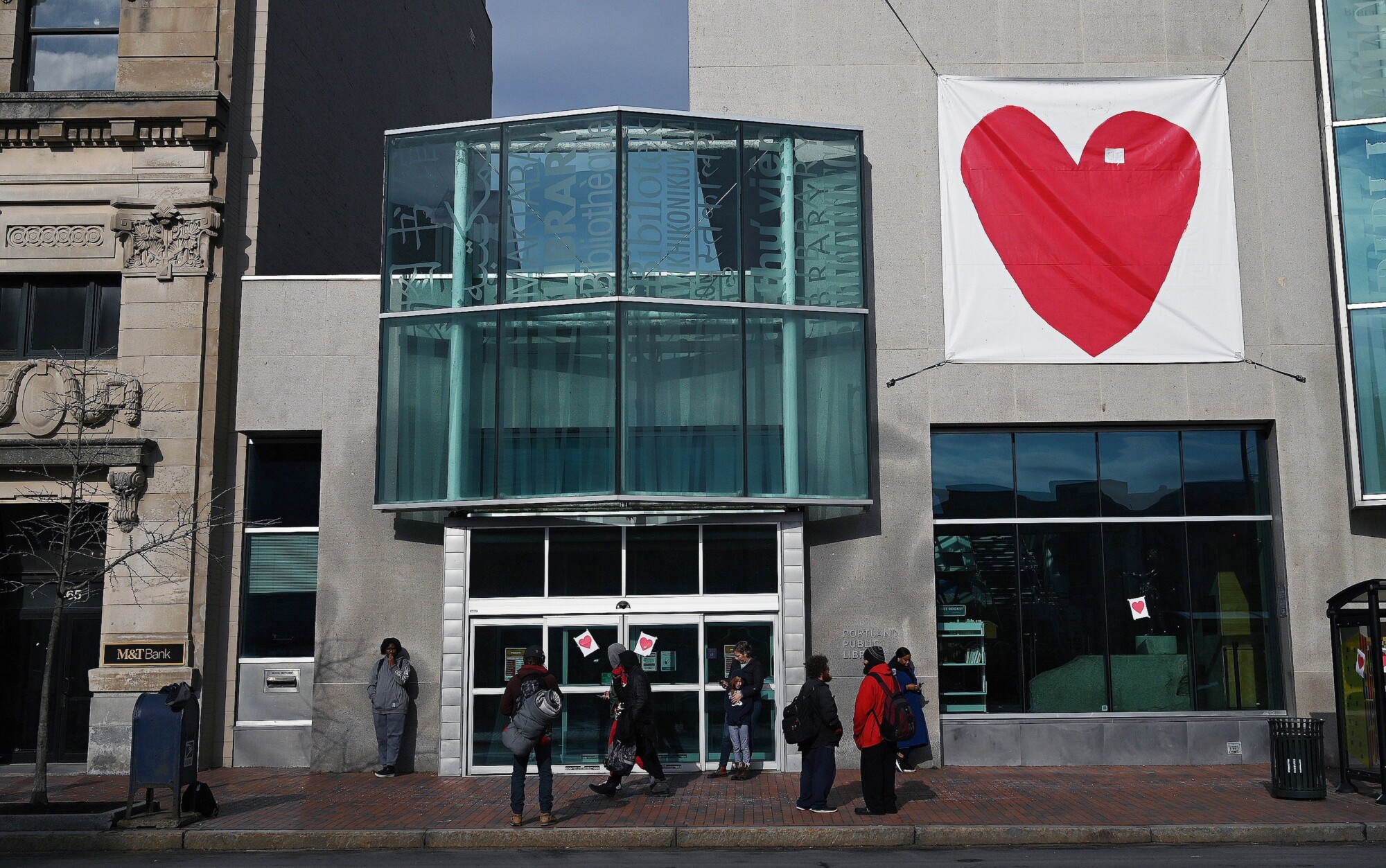As the executive director of Portland Public Library, I witness the transformative impact of libraries every day. Libraries are far more than collections of books — they are dynamic hubs of engagement, learning and innovation. In a time of deepening divides and the rapid spread of information and misinformation, libraries stand as trusted beacons of truth and community connection.
As we navigate changing times, the need for libraries has never been greater. Now, more than ever, our libraries need us to champion and protect them. Like many others, my library experience started with my first library card.

It was a key, a passport, a ticket to a world of discovery, exploration and connection. Today, that sense of endless wonder is alive and well in libraries nationwide, including at Portland Public Library. Our goal is to keep this passion alive and create a cultural center for all members of our community.
Sarah Moore is executive director of the Portland Public Library. Recently, during National Library Week, the Maine State Library stopped receiving federal funding from the Institute of Museum and Library Services. As a result, it had to lay off 13 employees and close its doors for two weeks to restructure.
The Maine State Library supports critical statewide programs like Interlibrary Loan and Talking Books, which enable our state’s small rural libraries and individuals with disabilities to access necessary tools and resources. This change will affect libraries across Maine. Libraries are shining examples of the power of shared resources — promoting sustainability, reducing costs and strengthening communities.
Shared resources supported through increasingly uncertain funding fill the gaps between libraries and allow us to provide opportunities to everyone. Programs like CloudLibrary, which offers access to ebooks and streaming audiobooks, and the Maine School and Library Network, which provides low-cost or no-cost internet, are at risk without stable funding. For many people, especially those in rural areas of our state, high-speed internet is still not available or affordable.
Free library Wi-Fi connects Maine’s communities to essential services such as telehealth, remote work, education and job searching. In today’s technology-driven world, reliable internet access is more than a convenience, it’s a critical lifeline. Without it, many individuals in our communities would face serious barriers to opportunity and success.
A 2019 Gallup poll revealed that more Americans visited libraries than attended movies, sporting events or national parks. This striking statistic underscores the enduring role of libraries as vibrant cultural and social hubs. At their heart, libraries serve as essential “third spaces” — welcoming environments beyond home, school or work where people of all backgrounds can connect, collaborate and thrive.
Libraries are also steadfast pillars of intellectual freedom, meaning that library users and all Americans have the right to read, seek information and speak freely, as guaranteed by the First Amendment. Public libraries offer trusted guidance and resources in a world increasingly clouded by misinformation. As we face an ever-evolving landscape of challenges, libraries must remain at the heart of our communities.
The resilience and dedication I witnessed from our librarians and community members during National Library Week inspired me and gave me hope. Every story shared, connection made and mind opened in a library strengthens the foundation for a brighter future. Libraries show us what can be achieved when we prioritize learning, community and shared resources.
Libraries are not just institutions, they are lifelines, offering opportunity, inspiration and a sense of belonging to all who walk through their doors. Supporting our libraries ensures that the next generation will continue to have access to information, community connections and endless wonder. We believe it’s important to offer commenting on certain stories as a benefit to our readers.
At its best, our comments sections can be a productive platform for readers to engage with our journalism, offer thoughts on coverage and issues, and drive conversation in a respectful, solutions-based way. It’s a form of open discourse that can be useful to our community, public officials, journalists and others. Read more.
.. We do not enable comments on everything — exceptions include most crime stories, and coverage involving personal tragedy or sensitive issues that invite personal attacks instead of thoughtful discussion.
For those stories that we do enable discussion, our system may hold up comments pending the approval of a moderator for several reasons, including possible violation of our guidelines. As the Maine Trust’s digital team reviews these comments, we ask for patience. Comments are managed by our staff during regular business hours Monday through Friday and limited hours on Saturday and Sunday.
Comments held for moderation outside of those hours may take longer to approve. By joining the conversation, you are agreeing to our commenting policy and terms of use . More information is found on our FAQs .
You can modify your screen name here . Show less Please sign into your Press Herald account to participate in conversations below. If you do not have an account, you can register or subscribe .
Questions? Please see our FAQs . Your commenting screen name has been updated. Send questions/comments to the editors.
.
Politics

Maine must not lose sight of the power of libraries | Opinion

Our libraries are not just institutions, they are lifelines.















